|
8/31/2014 Day 31: A Story of Inspiration “The biggest thing I did was to dive into my strengths- I studied hard and worked hard. I needed to accomplish things on my own and I did. I ditched the crappy counselor who was dismissive and found one who cared. Doing advocacy work with people who experienced IPV was too close to home for me, but I found working for causes of other kinds to be healing.” ~ Domestic violence survivor
This quote concludes our “31 Days of Stories” series, but we will continue to share stories of survivors through the See the Triumph campaign. These stories fuel our work, and they’ve motivated and inspired us to continue our work to end the stigma surrounding intimate partner violence. We hope the stories we shared throughout the month had an impact on you—and most of all, that they provided you with a deeper understanding of the dynamics of intimate partner violence, as well as the strength, courage, and inspiration of survivors! 8/30/2014 "Oh Yes, It Is A Journey"Note: The following piece was written by one of the anonymous participants in our most recent research study. We’ve changed a few of the details that we thought might give clues to her identity, but otherwise, the words are hers, and we are so grateful that she shared her story with us. Her story reflects so many of the themes we’ve heard from many others who have shared their stories with us through our research, too. We were so moved by what she wrote, and we hope her words will offer inspiration, encouragement, and hope to others as well. Please note: Some of the details in this story are graphic, so please use discretion in deciding whether to read further.
************************************ “Oh yes, it is a journey. It is a journey where you discover that you have been charmed, he rewards you for doing it his way, he takes over more and more until you literally lose yourself. You live in a cycle of fear, anticipation, and violence if you disobey. Others are brought into the picture to support the abuse rather than the love that is supposed to be present. You learn to keep quiet and obey. You slowly decline while he increases and at the same time finds new ways to destroy you. You will look like a crazy woman, a mental patient, all worn out, a shell of a person. People will believe him, not you, simply because of how you look. He will take everything that means anything to you. One day, he will consider you so used up that you become secondary to whoever he has chosen as a new victim(s). He will want a harem of victims. “Look at you, why don't you go fix yourself up, I don't even know if I like you anymore, I have someone new, I want to leave, but I am taking your children with me, I am trading you in on two twenty-somethings, why won't you take the rap on bad deals like her, here's a list of what I want, do I have to retrain you to do what you are told?” Eventually the abuse becomes bolder and bolder and very obvious, but he is a charming prince and people describe him as a faithful husband in public. You see him choke your son, choke your dog, lie about you to others. You see no food, no water, no heat, you are left to freeze in a blizzard with no way out with no oil for the furnace. You have no phone, no gas for the car. He controls the money. Sometimes, he does not even come home for days. You find drugs, guns, strange bills, strange calls. He even goes on vacation out of state without telling you he is leaving. Every morning that he is home, you get raped and forced to watch porn and act out. You know that this is not an act of love. You worry about STDs. Sometimes he spits on you during sex or ejaculates into your face and eyes. You think no one will care, no one will believe you, that there is no place to go. If you complain about no heat, he holds a gun on you and the kids. It is down to the bare bones of who and what you are, having kids, and you know you would be better off on the streets. He comes home and injures you to the point where you think I can't run away and he will hurt the kids. The cops come, the people come to talk to me. I make the DECISION to leave it all. Three months of seeing other women, some addicted, some abusive, some abusive counselors and professionals, some who have lost it mentally. I struggle to be up at 5 AM to get kids to school, to get to appointments to get food benefits, housing, medical. I've never been in the system before. I have to seek a job. Legal matters, court dates, attorneys, counselors, journaling, children's counseling. My head swims. He is out there when I leave everyday threatening from afar. Each day I fear the bullet waiting for me. I get a job, I get a car, I get housing, my kids have issues. We treat and sooth the problems. I rediscover myself - I cry because I don't know what I like. I realize how bad I look and fix that. I give hope to my children. I win the client of the year at the domestic violence agency for outstanding accomplishments. I cry some more. I go to school and work. I get a [work credential]!! It's my passion. I am looking for a job in my field. I help others along the way to give them hope and direction to get out of their abuse. I have part of my credit rating back, I bought a better car. I have my little garden to play in. My kids are thriving. I have a 5 year [protective order]. He violated it along the way, but I kept fighting and say thank goodness for court advocates to hold my hand and help me breathe when I have to see him in court dates. He tries to get visitation...He is in violation of [the protective order], has other charges, and tried to talk to my children. I go to the police, I go to the prosecutor. I think here I am, it's [been years] and he is still at it! He will not see my children, he will not corrupt them. I go back to [the agency], where they welcome me with open arms to talk for hours. I come armed with evidence - court dockets on him to the ceiling. We get an attorney, I sign papers to let them represent me to the court. This time he will not succeed in domestic violence. I am free, I know what I like, what I believe in, I recognize abuse when I see it. I see it plenty too in the real world, not just from him. It is an ugly thing that is out there that everyone needs to be educated about. I am still fighting. But today, I know that I like the scent of [flowers], I like coffee with cream, I like to have my bills paid, I love my children, I like to read, I love [my work] and I can help others, I don't have to have sex with anyone, I do not like porn, I know that I am not stupid or ugly, I can walk with my head up high. I am a survivor not a victim.” ~ Written by an anonymous research participant, See the Triumph 8/30/2014 Day 30: A Story of Inspiration “I started to trust, believe in myself, and to care and love. I think the one thing I learned to do was to forgive. It took so much pressure off of me and my family. I got a job, went back to school and help anyone as much as I could that was experiencing what I did.” ~ Domestic violence survivor
8/29/2014 Day 29: A Story of Inspiration “I went from a pregnant (teenage) wife that dropped out of high school and became a victim of domestic violence to a independent…woman with a college degree with 3 beautiful children…working at a domestic violence shelter as an…advocate for victims in our shelter. There is nothing weak, dumb, incapable about myself. I do presentations in my community to educate about domestic violence.” ~ Domestic violence survivor
By Christine Murray, See the Triumph Co-Founder
We learned a lot from the participants in our research about the many ways that people can share their stories. We want to emphasize that there is no one “right way” to do this. Your story is your own, and you should only tell it in ways that are comfortable, safe, and meaningful for you. For some people, this means speaking publicly about past experiences with abuse. However, there are many reasons why a person may not want to do this, and those reasons are valid--especially when safety risks are involved. There are many other ways that people can tell their own stories that may or may not involve sharing with anyone else. Following are a few examples of the various ways that participants shared with us that they told their stories. One of the most personal ways to tell one’s story is through writing it down, such as through keeping a journal. One participant said, “I mentioned before that I am a writer. Writing about the experiences has helped me process them...Processing the abuse in my own time has allowed me to understand that it was not my fault and allowed me to personally overcome the stigma of abuse in my own mind.” Other people may find it empowering and helpful to tell their stories to people who are close in their lives, or in a confidential setting like counseling. For example, consider the following quotes:
For some, speaking publicly is an empowering way to have their story help educate others. Here are some great examples of this from participants in our research:
Of course, regardless of how or when survivors tell their story, it’s important for them to be the one to make these choices. Some of the participants in our research emphasized the importance of sharing when the moment is right:
8/28/2014 Day 28: A Story of Inspiration “I am in college and raising my children on my own. My goal is to be the sole provider for my children and prove to them all of their dreams can come true and we can do it on our own. I…want to inspire victims to become survivors. So my education will be used to advocate for women and children and hopefully start my non-profit to make a positive change in our community, even though I am told it will never change. I am already looked down upon, so the way I see it will not hurt me any more to stand up for what is right, and who knows maybe my voice will be heard.” ~ Domestic violence survivor
8/27/2014 Day 27: A Story of Inspiration “I am more determined than ever before to be successful. I have my own…business now… I keep busy...It has changed my life and it was a horrible experience, but I am stronger and there will never be a man or anyone to tell me what to do as far as being in an intimate relationship and I will never be controlled. I will be independent and focus on my career, my children, education, and church activity.” ~ Domestic violence survivor
By Christine Murray, See the Triumph Co-Founder
This month’s focus on “Every Survivor Has a Story” has been an especially meaningful one for us at See the Triumph. The stories we heard from the survivors of intimate partner violence who participated in our research are really what drove us to start See the Triumph in the first place, as we knew that these stories were important ones that needed to be told. As this month draws to a close, I’ll share some additional quotes from survivors in our research that highlight both the power of telling one’s story today, and on Thursday, I’ll address the importance of people finding their own unique ways to do so, either privately or publicly. One of the main themes we heard from research participants was that telling their story helped play a role in their healing from the effects of the abuse the experienced. For example, one participant said, “Just sharing my story has been cathartic. It has been important for me to tell others that abuse is not just physical; most abuse is actually emotional. Emotional abuse is also something important to recognize.” Another said, “I'm still struggling a lot with my past abuse. But talking about it feels so good. It takes some of that emotional weight & anxiety off my chest.” We also heard from several participants that talking about their stories helped them to overcome stigma and empower themselves. Consider, for example, the following quotes:
Indeed, there is power in telling one’s story. Stories hold the potential for healing, for overcoming, and for educating others. Let’s continue to work together so that survivors’ stories are honored and heard! |
Archives
July 2024
CategoriesAll About Intimate Partner Violence About Intimate Partner Violence Advocacy Ambassadors Children Churches College Campuses Cultural Issues Domestic Violence Awareness Month Financial Recovery How To Help A Friend Human Rights Human-rights Immigrants International Media Overcoming Past Abuse Overcoming-past-abuse Parenting Prevention Resources For Survivors Safe Relationships Following Abuse Schools Selfcare Self-care Sexual Assault Sexuality Social Justice Social-justice Stigma Supporting Survivors Survivor Quotes Survivor-quotes Survivor Stories Teen Dating Violence Trafficking Transformative-approaches |
Search by typing & pressing enter


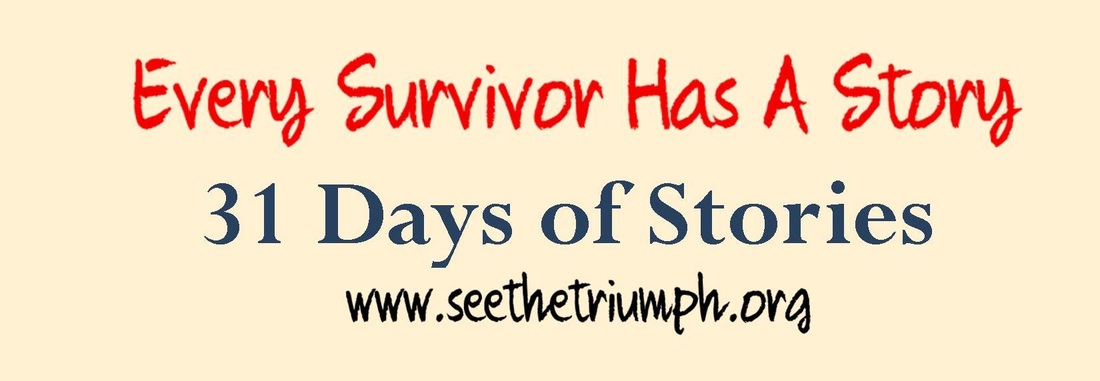
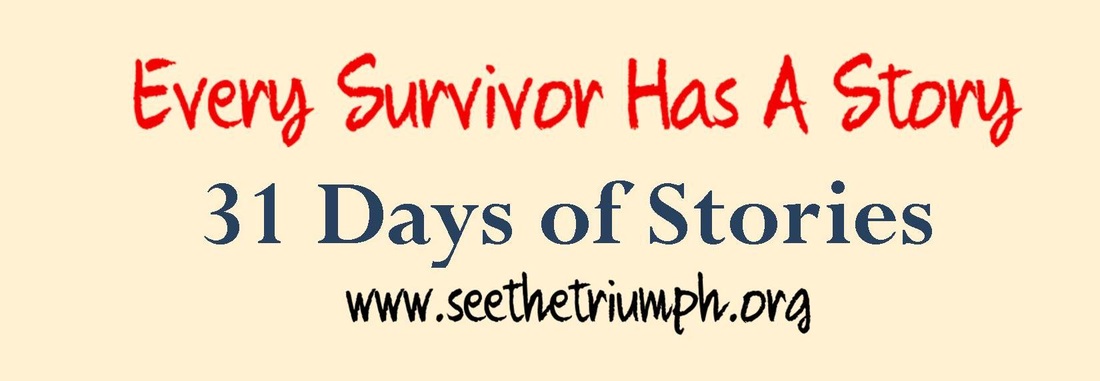
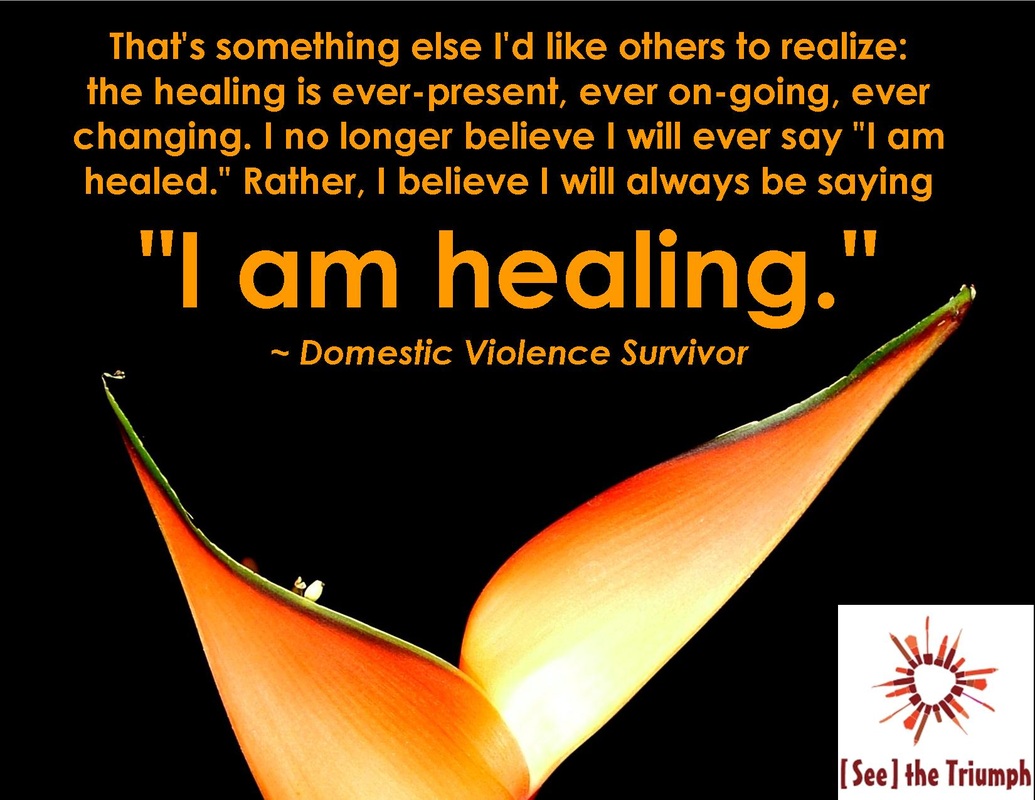
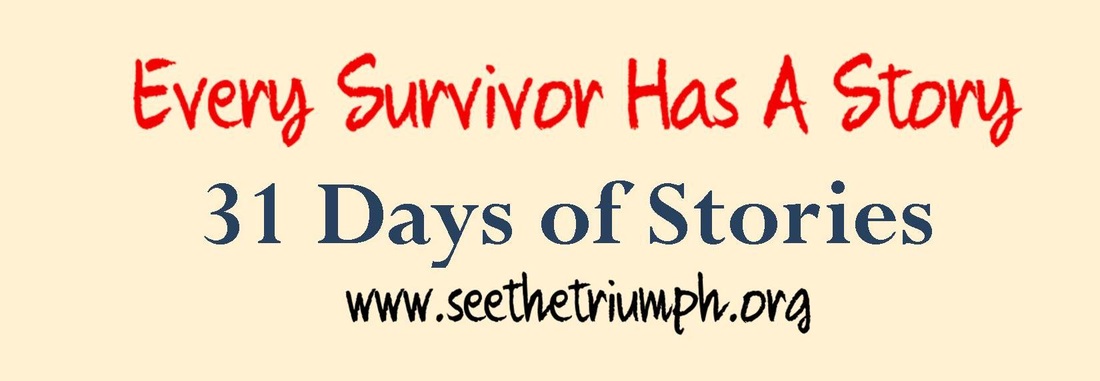
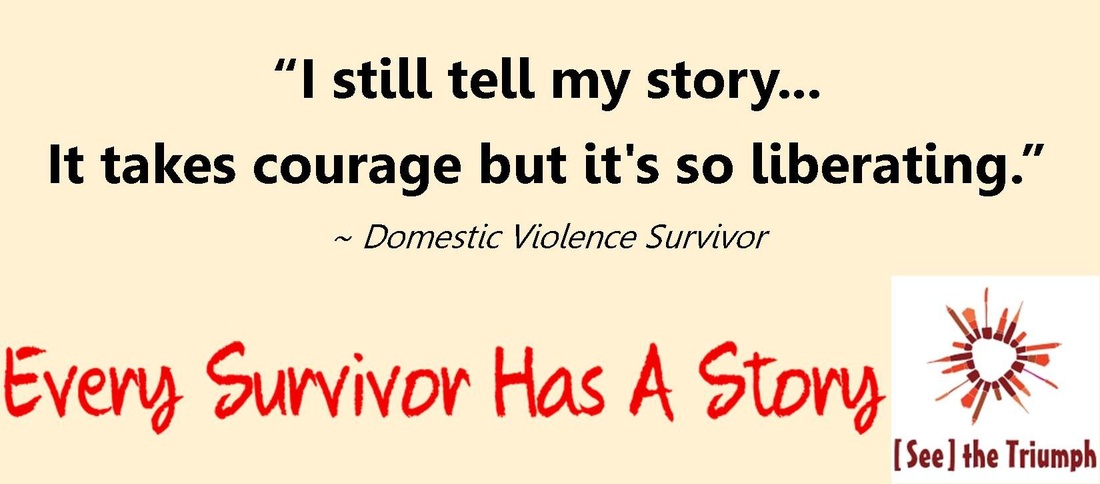
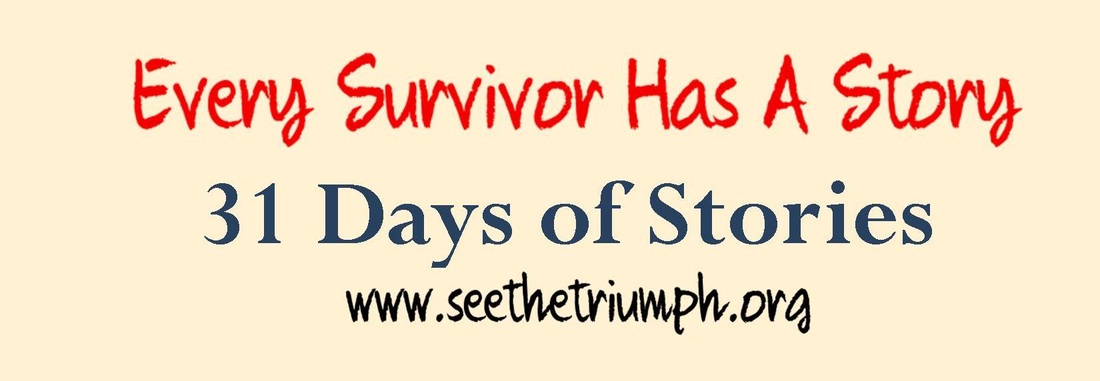
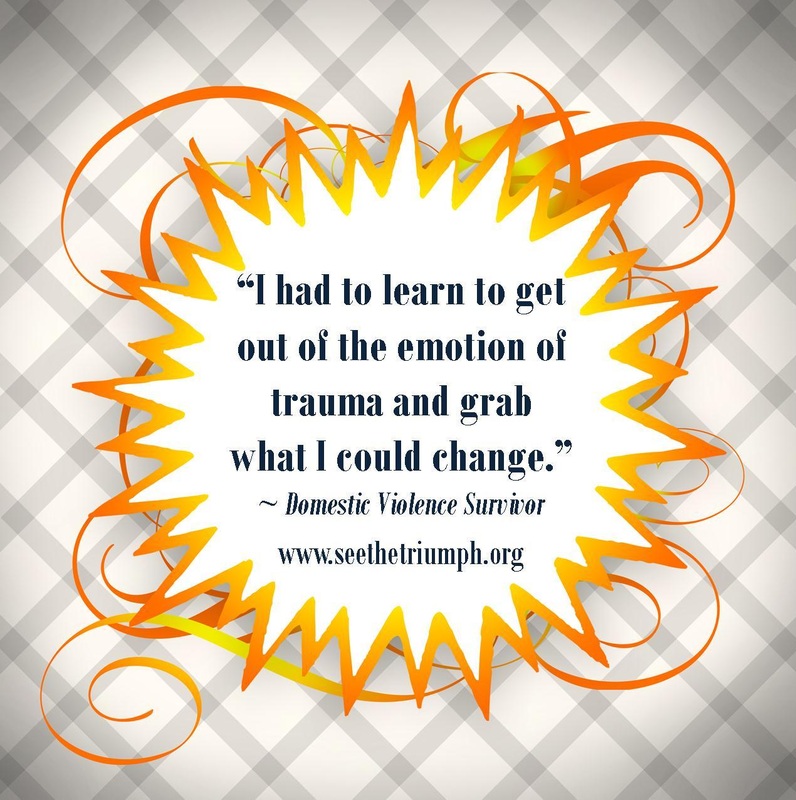
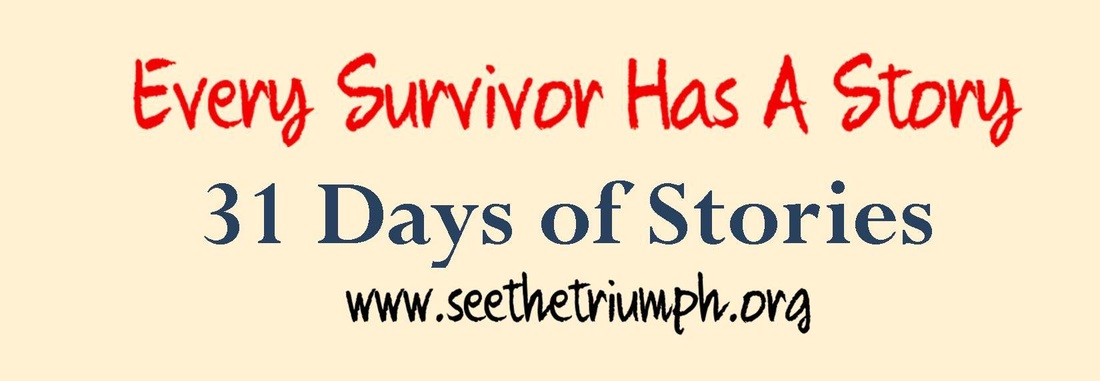
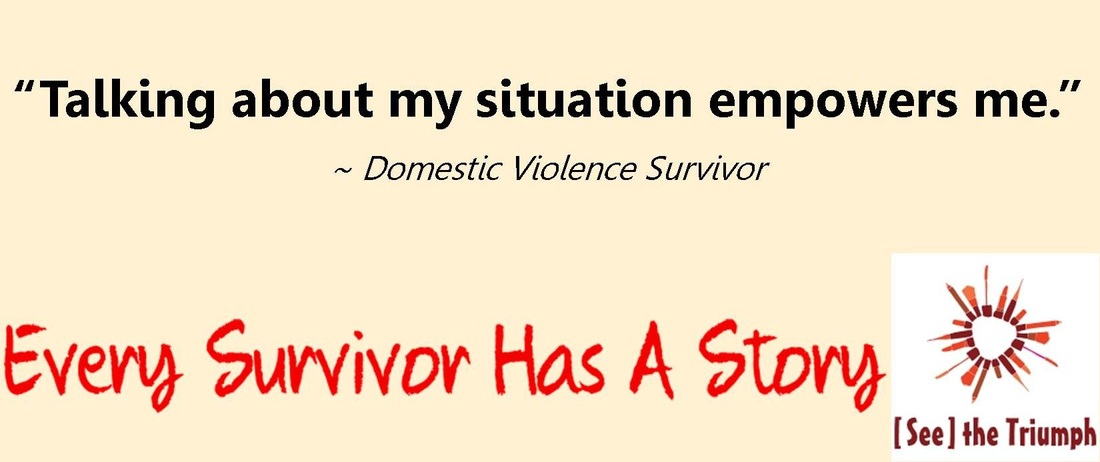
 RSS Feed
RSS Feed